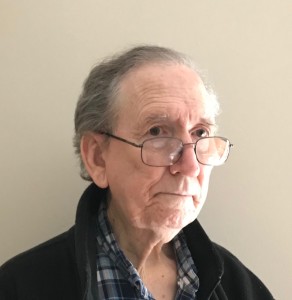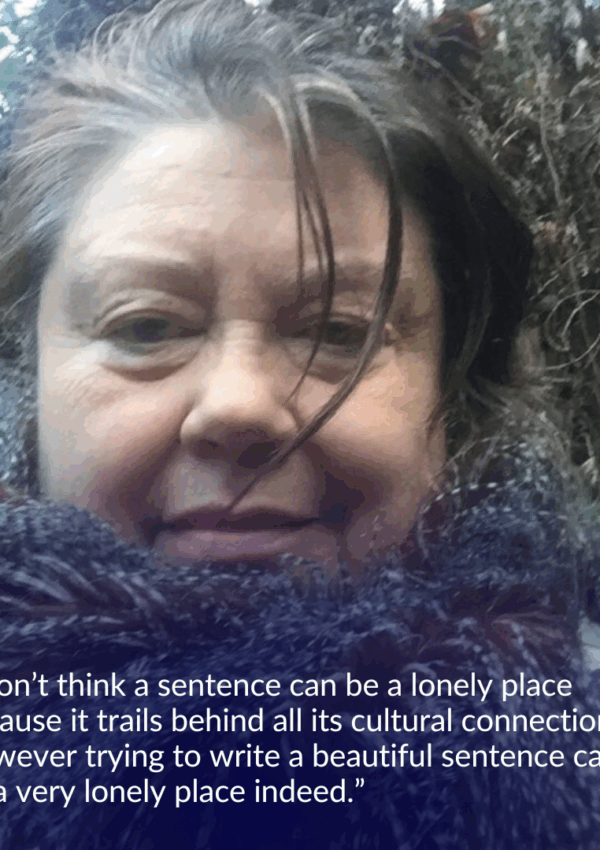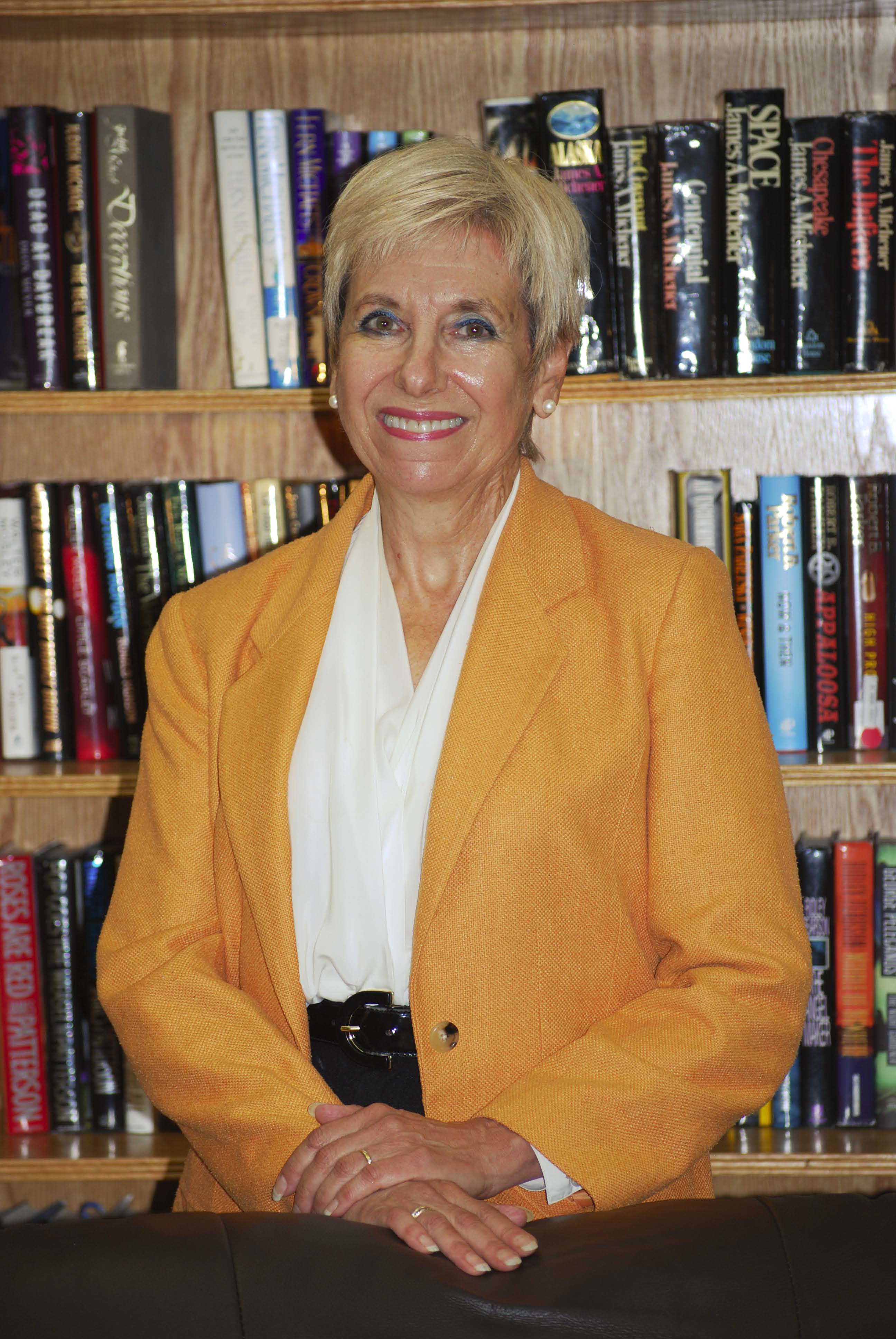The senses are all we have. Without them we would be only a blob of protoplasm without even a sense of touch, and therefore with no ability to survive. Fiction is much the same. The fiction writer who best deploys the senses is the most vivid and often the most memorable writer.
First of all, the senses drive the narrative.
To illustrate, I will use a passage from Emily Brontë’s novel Wuthering Heights:
The distance from the gate to the Grange is two miles: I believe I managed to make it four; what with losing myself among the trees, and sinking up to my neck in snow… At any rate, whatever were my wanderings, the clock chimed twelve as I entered the house; and that gave exactly an hour for every mile of the usual way from Wuthering Heights.
My human fixture and her satellites rushed to welcome me; exclaiming, tumultuously, they had completely given me up: everybody conjectured that I perished last night; and they were wondering how they must set about the search for my remains. I bid them be quiet, now that they saw me returned, and, benumbed to my very heart, I dragged upstairs; whence, after putting on dry clothes, and pacing to and fro thirty or forty minutes, to restore the animal heat, I am adjourned to my study, feeble as a kitten: almost too much so to enjoy the cheerful fire and smoking coffee which the servant has prepared for my refreshment.
It is interesting to see the way the senses are employed by Brontë. The narrator is buried in snow up to his neck; when he reaches the Grange, the clock chimes twelve; his greeting is tumultuous; he is benumbed to his very heart; he paces the floor to restore some heat to his body; in his study are “a cheerful fire and smoking coffee.” The senses drive the narrative.
Herman Melville demonstrates an even more striking aspect of the senses in fiction: they can create narrative, as in his short story “The Piazza.” At the beginning of this tale, the narrator is disenchanted with life; but when he looks up at a small house on the mountain, made tiny and romantic by distance, he feels that the people there must be happy. He decides to climb up to this distant beacon. The way is long and hard, and it is the description of this way that makes the story in “The Piazza”:
My horse hitched low his head. Red apples rolled before him—Eve’s apples, seek-no-furthers. He tasted one, I another; it tasted of the ground. Fairyland not yet, thought I, flinging my bridle to a humped old tree, that crooked out an arm to catch it. For the way now lay where path was none, and none might go but by himself, and only go by daring. Through blackberry brakes that tried to pluck me back, though I but strained toward fruitless growths of mountain laurel, up slippery steeps to barren heights, where stood none to welcome. Fairyland not yet, thought I, though the morning is here before me.
Footsore enough and weary, I gained not then my journey’s end, but came erelong to a craggy pass, dipping towards growing regions still beyond. A zigzag road, half overgrown with blueberry bushes, here turned among the cliffs. A rent was in their ragged sides; through it a little track branched off, which, upwards threading that short defile, came breezily out above, to where the mountaintop, part sheltered northward by a taller brother, sloped gently off a space ere darkly plunging; and here, among fantastic rocks, reposing in a herd, the foot track wound, half beaten, up to a little, low-storied, grayish cottage, capped, nunlike, with a peaked roof.
Melville uses primarily sight, but sprinkles this passage with other senses. The apples taste “of the ground”; the narrator gets snagged in blackberry vines; he goes up “slippery steeps”; his feet hurt, and he is weary. But visual images drive the narrative; and in fact, the entirety of “The Piazza” is driven by the landscape as the narrator climbs to find the happy fairy house that he sees from his home in the valley. The sensory details make the story; without them, there would be no story.
So the senses can drive the narrative, even make story. One only needs to think of Joseph Conrad’s novel Typhoon to see that this is so.
Another thing that the senses can do is create character. A potent example of this can be found in James Fennimore Cooper’s The Deerslayer:
Both these frontiersmen were still young, Hurry having reached the age of six or eight and twenty, while Deerslayer was several years his junior. Their attire needs no particular description, though it may be well to add that it was composed in no small degree of dressed deerskins, and had the usual signs of belonging to those who pass their time between the skirts of civilized society and the boundless forests. There was, notwithstanding, some attention to smartness and the picturesque in the arrangements of Deerslayer’s dress, more particularly in the part connected with his arms and accouterments. His rifle was in perfect condition, the handle of his hunting knife was neatly carved, his powder horn was ornamented with suitable devices lightly cut into the material, and his shot pouch was decorated with wampum. On the other hand, Hurry Harry, either from constitutional recklessness, or from a secret consciousness how little his appearance required artificial aids, wore everything in a careless, slovenly manner, as if he felt a noble scorn for the trifling accessories of dress and ornaments. Perhaps the peculiar effect of his fine form and great stature was increased, rather than lessened, by this unstudied and disdainful air of indifference.
In a few physical strokes, Cooper gives us a wonderful idea of the character of Deerslayer and Hurry Harry—especially of the latter.
Finally, the senses can even solve writer’s block. George Garrett, my mentor when I was at The University of South Carolina, used to say that if you get stuck, cram all five senses into your next paragraph, and that will guide you through it. I have found that George was right about that—moreover, that his advice can grease the rails for the entire remainder of a story. In my story “When Nellie Bledsoe Fixed Big Train Wallers” I have this:
The day came for Big Train to meet his customer. It was on the outskirts of town: dead yellow grass stippled with green, gnarled trees half-denuded of their foliage, and an abandoned, rotting farm house. The tree branches were not blowing in the wind, neither were the torn screens on the porch, for there was no wind. All was still. On the porch the yellow grass poked up through the cracks between rotting planks. It was the dream of death rehearsed. He walked slowly through the door. Droppings made clear the animal custody of the house; there was life, but not human life. There was a feral smell. He heard a rustle, a scurrying of feet. Then all was still, as before. As in a vision he saw the skull looking at the bones of the body. Where had all the people gone? He felt the transitoriness of life and shivered. But where was the man he was supposed to meet? Was Nellie trying to make a fool of him?
Then Big Train sees Nellie and three men coming through the door. Two men have drawn guns and the third carries an axe handle. Big Train sees they are revenuers. In his rage Big Train tries to attack one of the men, but the one with the axe handle strikes him a disabling blow to the knee and Big Train crumples to the ground, and he cries out, “Why, Nellie?”
Notice the senses: There is a feral smell; he hears a rustle and scurrying of feet; he is struck a terrific blow to the knee. Throughout, there are visual images. That is all of the senses except the sense of taste. This scene not only got me over that point in the story, but propelled me straight through to the end.
Of course, any time you describe an action in a story you are appealing to the visual sense of the reader, for the reader cannot take in your words without visualizing the action. But actual visual details make so much more impact, as in William Styron’s Lie Down in Darkness. This is one of the most memorable novels of the 20th Century for me, an attribute of the novel fed first and foremost by the brilliant rendering of place. So make every effort to bring your narrative to life through the senses. It is good to remember that our five senses are always at our service, in fiction as in life, and that they are almost as essential to the telling of a story as for our continuance of life.
 David Massey has a Master’s Degree in English Literature After 1660 from The University of South Carolina and, while there, studied creative writing under George Garrett and James Dickey.
David Massey has a Master’s Degree in English Literature After 1660 from The University of South Carolina and, while there, studied creative writing under George Garrett and James Dickey.



